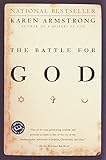承前*1
John Gray “The book that changed my life” http://www.newstatesman.com/books/2009/02/norman-cohn-john-gray-world
グレイ氏にとって「人生を変えた本」はノーマン・コーンの主著『千年王国の追求』。
少しコピペ。
先ず、グレイ氏は『千年王国の追求』誕生のきっかけが軍務に就いていたコーンのナチス捕虜との会話だったことに注目している。また、『千年王国の追求』と後のユダヤ陰謀理論や魔女狩りの研究とのつながり;
『千年王国の追求』の現代政治(イデオロギー闘争)に対するレリヴァンス。イラク戦争を例として;
Reading Cohn's masterpiece left me with a suspicion of world-transforming political projects that has remained with me ever since. At the same time, I was convinced that no view of the modern world which neglects the persistent power of religion could be taken seriously - a view that events have only reinforced. Not only has religion not faded away, as secular thinkers expected, but repressed religious passions permeate secular politics, often with malignant consequences. When I came to know Norman Cohn, I was interested to learn that the book was triggered by conversations among captured Nazis on which he had eavesdropped as part of his work in intelligence during the Second World War.Though they knew their cause was lost, these Nazis took perverse comfort from a kind of negative eschatology. They had failed to create their racist utopia; but through their crimes, they believed, they had brought the old world to an end. In later books, notably Warrant for Genocide: the Myth of the Jewish World Conspiracy and the Protocols of the Elders of Zion (1966) and Europe's Inner Demons (1975), Cohn showed how this kind of eschatological thinking mixed with Christian demonology led to the great witch-hunts of early modern times, and eventually to the supreme crime of the Holocaust.
また、進歩主義(「リベラルなヒューマニズム」或いは「リベラルな合理主義」)も、ナチズムや共産主義と同等な資格で「神話」であること;
It is impossible to understand 20th-century politics unless Cohn's insights into the religious origins of totalitarian movements have been fully absorbed, but the importance of his work extends well beyond totalitarianism. Eschatological thinking can have a malign effect in liberal democracies. To take only the most obvious example, an eschatological turn of mind lay behind a good deal of the support for the Iraq War. Sometimes this thinking was explicitly religious, as with the American Christian fundamentalists who supported the war as a prelude to Armageddon*2 ; but the same mentality was expressed by neoconservatives who saw regime change as the start of a "global democratic revolution", and by liberal interventionists who imagined that toppling Saddam Hussein would inaugurate a new world order ruled by human rights. In each case, the particularities of Iraq - its status as a composite state, created in colonial times and divided by deep-seated enmities - were ignored, and the risks of civil war and anarchy discounted. The warnings of history were lost in an epiphany of a new world.
ここで、マルクス主義の宗教性に関するアーネスト・ゲルナーの講演を再びマークしておく*3;
There is a line of reasoning which accepts that totalitarian ideologies were shaped by apocalyptic and utopian thinking, while insisting that liberal humanism is entirely different. They - the Nazis and communists - may have been deluded and irrational; we - enlightened meliorists - have purged our minds of myth. In fact, the belief in progress in ethics and politics, which animates liberal rationalism, is itself a myth: a view of history as a process of redemption without the Christian belief in a single transforming event, but nonetheless a faith-based narrative of human salvation. It is obvious that human life can sometimes be improved. Equally, however, such gains are normally lost in the course of time. The idea that history is a process of amelioration is an article of faith, not the result of observation or reasoning.
“Religion and the profane” http://www.eurozine.com/articles/2000-08-28-gellner-en.html
さて、ノーマン・コーンは2007年に92歳で他界している。取り敢えず、Wikipediaの項目と追悼記事2本をマークしておく;
http://en.wikipedia.org/wiki/Norman_Cohn
Paul Lay “Obituary: Norman Cohn” http://www.theguardian.com/news/2007/aug/09/guardianobituaries.obituaries
“Professor Norman Cohn” http://www.telegraph.co.uk/news/obituaries/1559275/Professor-Norman-Cohn.html
また、”Norman Cohn's The Pursuit of the Millennium”という匿名のテクスト*4はコーンと状況主義(situationisme)との捩れた関係を示している。
*1:http://d.hatena.ne.jp/sumita-m/20141011/1412993029
*2:取り敢えず、Karen Armstrong The Battle for God: A History of Fundamentalismをマークしておく。See http://d.hatena.ne.jp/sumita-m/20081211/1229012325 The Battle for God: A History of Fundamentalism (Ballantine Reader's Circle)
*3:Mentioned in http://d.hatena.ne.jp/sumita-m/20110918/1316327977 http://d.hatena.ne.jp/sumita-m/20111002/1317520950